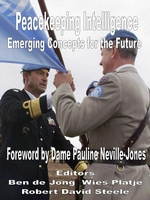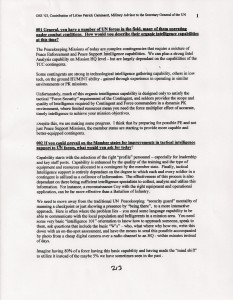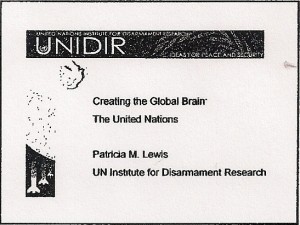
The Netherlands, MajGen Patrick Cammaert, Royal Marines
IOP '06. MajGen Cammaert is recognized for his extraordinarily diplomatic and diligent furtherance of common sense and understanding at the highest levels of United Nations leadership, with respect to both the generic value of the process of intelligence to peacekeeping and conflict avoidance, and the specific value of open sources of information, including geospatial information, useful to the strategic mandate, the operational force composition, and the tactical campaign. As Military Advisor to the Secretary General from 2003-2005, and then as Force Commander of UN Forces in the Congo, he devised and began implementation of the regional United Nations Joint Military Analysis Centre (UN JMAC) program. His leadership with respect to a common standard of intelligence training for all UN civilian and uniformed personnel are likely to have a considerable impact on the future effectiveness of peacekeeping operations
Although the Brahimi Report (AF) and the efforts of Louise Frechette (CA) as Deputy Secretary General to achieve strategic decision-support coherence were both important, no single person has done more to help the United Nations understand that intelligence is not a “dirty word” but rather an essential tool relevant to the strategic level (getting the mandate right), the operational level (getting the force structure right), and the tactical level (being effective in multicultural environments). Below are his responses to questions, as presented on a video interview done in New York.




